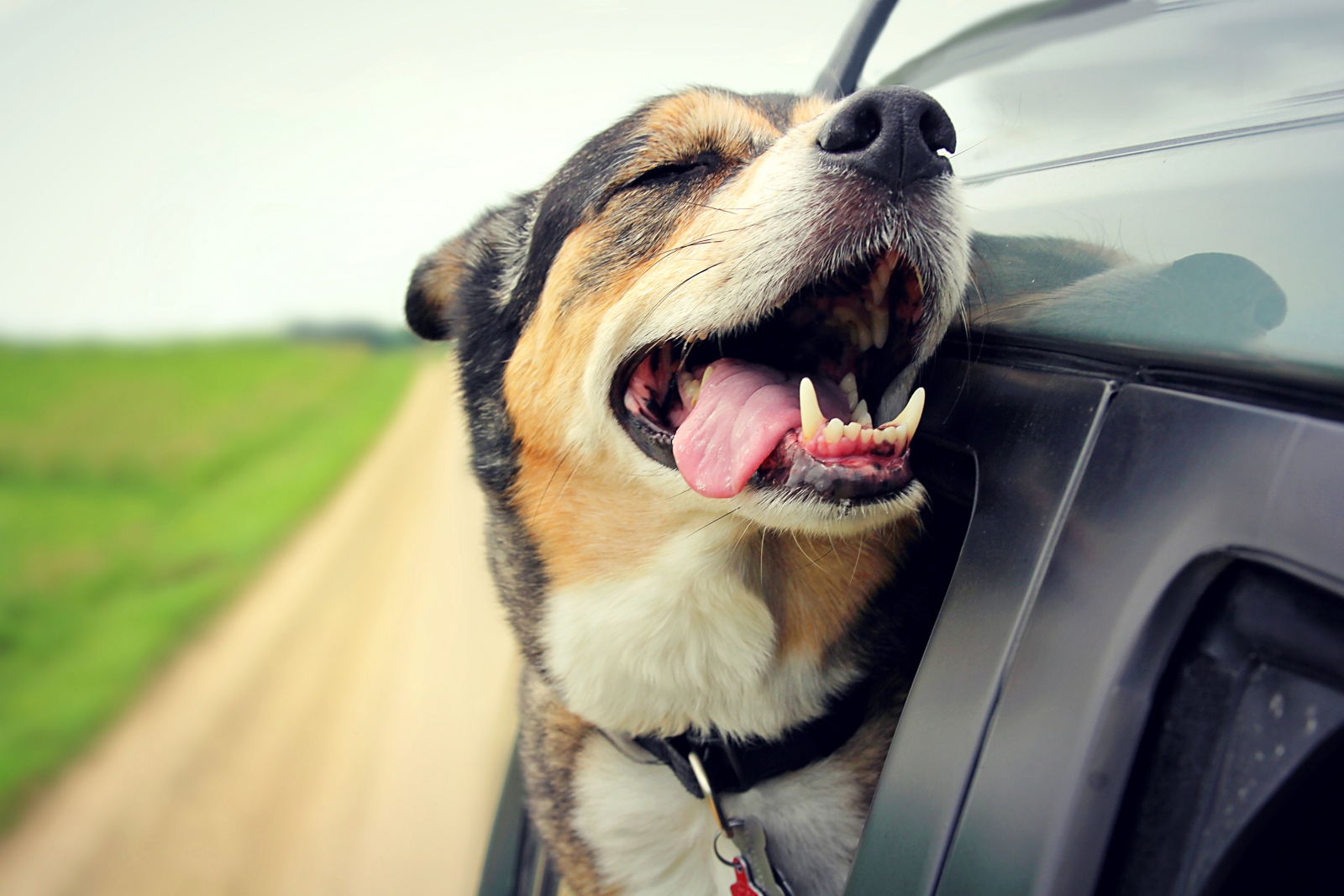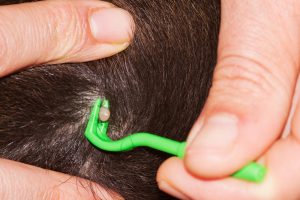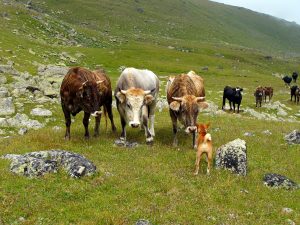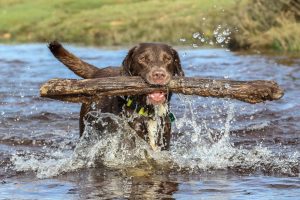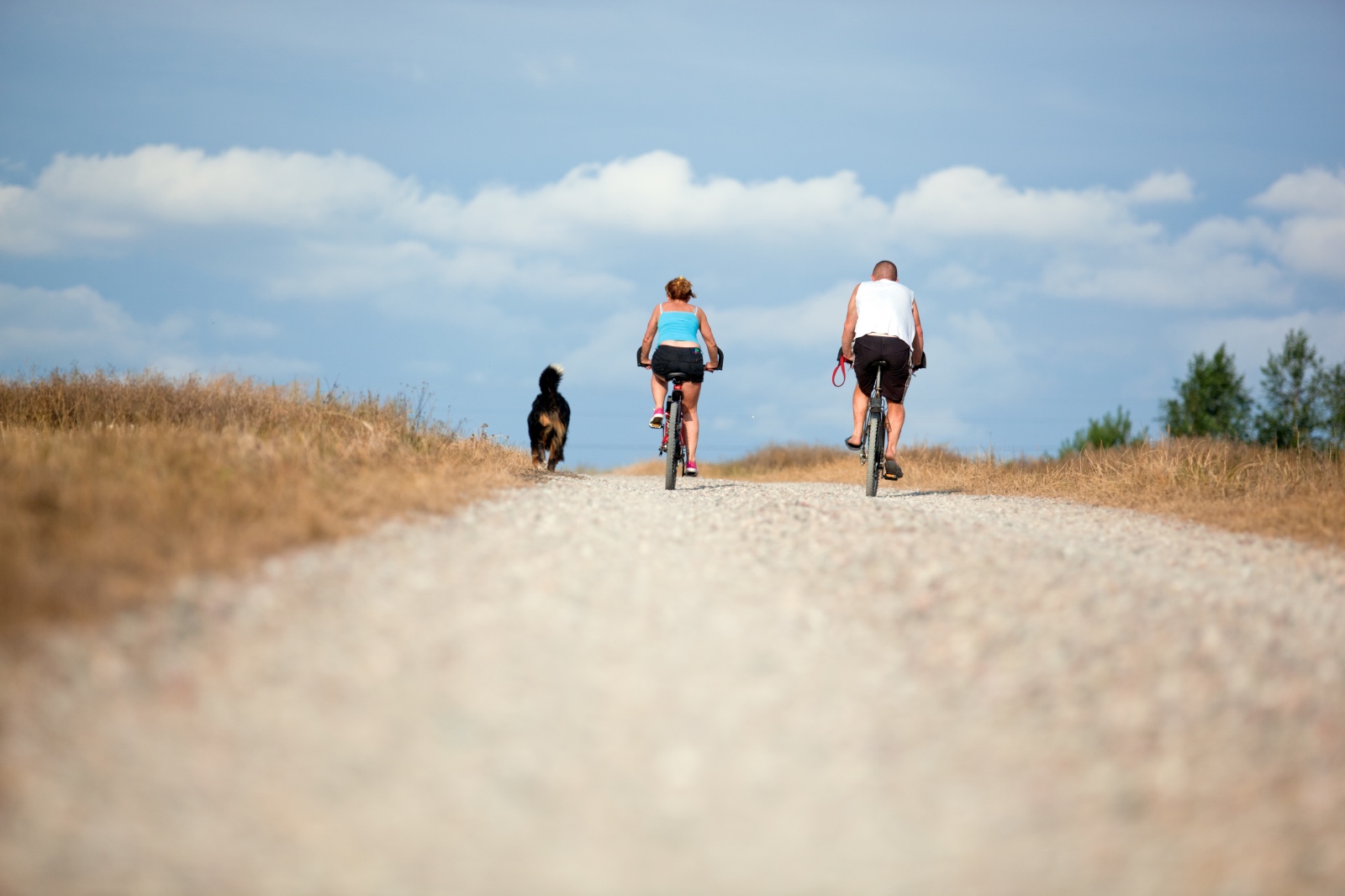One of the many great things about holidaying in the UK is that it provides the opportunity to take your dog away on holiday with you. There are plenty of dog friendly holiday cottages throughout the UK, providing a real home-from-home for both you and your four legged friend.
Part of the excitement of visiting a new area is the ‘unknown’ – a chance to explore new surrounds and enjoy new experiences, but make sure new experiences are positive ones. The last thing you want whilst on holiday, in an unfamiliar area, is a trip to the vet. Whilst it cannot always be avoided, there are a number of precautions pet owners can take to make sure their holiday goes as smoothly as possible and is memorable for all the right reasons!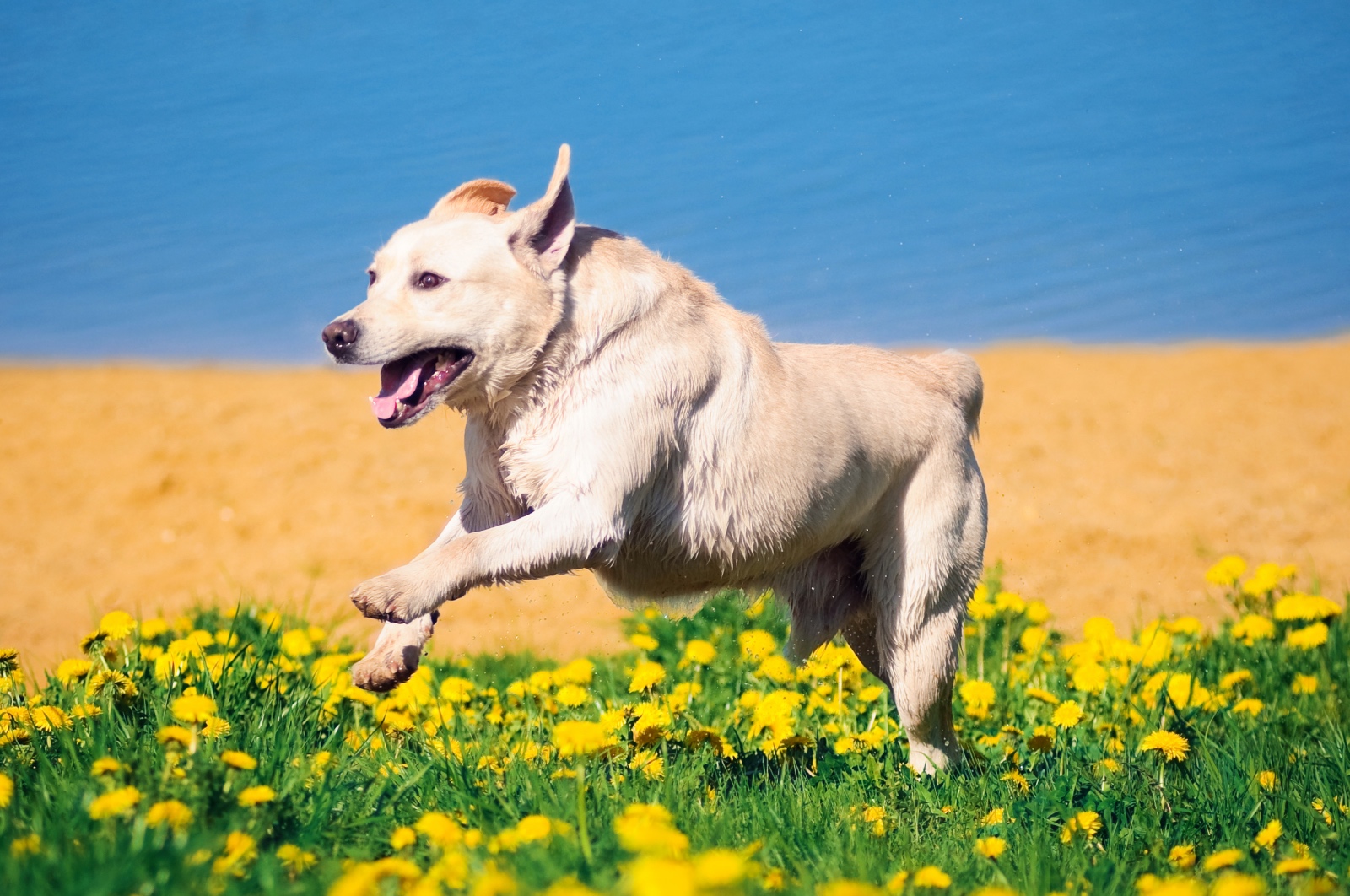
Before you arrive at your holiday cottage
- If your dogs does not regularly travel in the car, get him/her used to it in advance of your holiday. Some dogs, like humans suffer from travel sickness so identifying any problems in advance will allow you time to consult with your vet if need be.
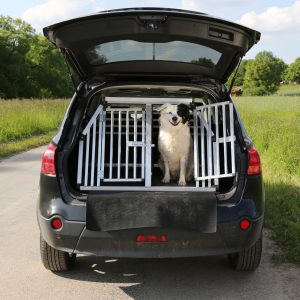 Consider using a crate for the journey. Having a crate to pack around can really help you better utilise space in the car. It also gives your dog its own comfy area whilst you travel, and keeps it in this area for the duration of the journey (if not contained, there is always a risk that a dog could be catapulted forward in the event of an accident or crawl around the car in search of food!). Make sure you purchase the correct size crate that allows enough space to lay out, turnaround and sit upright, and spend time getting your dog used to it in advance of the holiday using positive methods to ensure your dog views the crate as a nice place to be.
Consider using a crate for the journey. Having a crate to pack around can really help you better utilise space in the car. It also gives your dog its own comfy area whilst you travel, and keeps it in this area for the duration of the journey (if not contained, there is always a risk that a dog could be catapulted forward in the event of an accident or crawl around the car in search of food!). Make sure you purchase the correct size crate that allows enough space to lay out, turnaround and sit upright, and spend time getting your dog used to it in advance of the holiday using positive methods to ensure your dog views the crate as a nice place to be.- Pack a doggie travel bag and have it close to hand for the journey including a water bowl, water, lead, harness, meals/treats and poo bags.
- Make sure your dog has an identification tag on its collar that displays phone numbers you can be contacted on whilst away (i.e. your mobile phone number).
- Look up the contact number for the nearest vet to the cottage and programme it into your phone just in case you need it.
- When you pack your doggies holiday bag, don’t forget medications and pay particular attention to things that are not used on a regular basis; perhaps your dog is prone to getting ticks when walking in the countryside, has allergies, or becomes a little stiff and requires pain relief after long walks.
- If you have a lengthy car journey to your holiday destination, make sure you take lots of stops to allow all of you the opportunity to take a convenience break, have a drink and stretch your legs. You don’t want your dog to arrive stiff and sore, especially older dogs.
Once you have arrived
When you arrive at the cottage, familiarise yourself with your new surroundings and identify any potential ‘hazzard’ areas for your dog. Things to look out for might include:
- Fences with gaps your dog could squeeze out of.
- Bins and rubbish storage areas that your dog can access. There could be rubbish bags from previous guests containing dangerous, edible items such as chicken bones.
- Make sure there are no sharp items in areas your dog has access to, and not just ones he could catch himself on, but also those he could eat!
- If the cottage owner has requested that dogs are kept in specific areas of the property, check these areas over thoroughly and bear in mind that dogs may behave differently in new and unusual places, so remove any items the dog could get tangled in or chew (for example electric cables to lamps).
- Unfenced balconies need to be kept out of bounds.
- Make sure your dog cannot access dangerous cleaning chemicals.
- We all like a naughty treat on holiday, so if you have taken away chocolates for the family to enjoy, make sure the four legged members don’t help you! Chocolate is toxic to dogs so don’t leave any lying around. Whilst on that subject, make sure tablets and medications are unpacked and stored away out of your dogs reach, especially during the excitement of arrival and unpacking.
- There is nothing nicer than a roaring log fire (and what dog doesn’t like to lay in front of one after a long day walking?) but make sure you use a fire guard and never leave your dog unattended when the fire is lit. Also ensure that the dogs bed is kept as far away from the fire as possible.
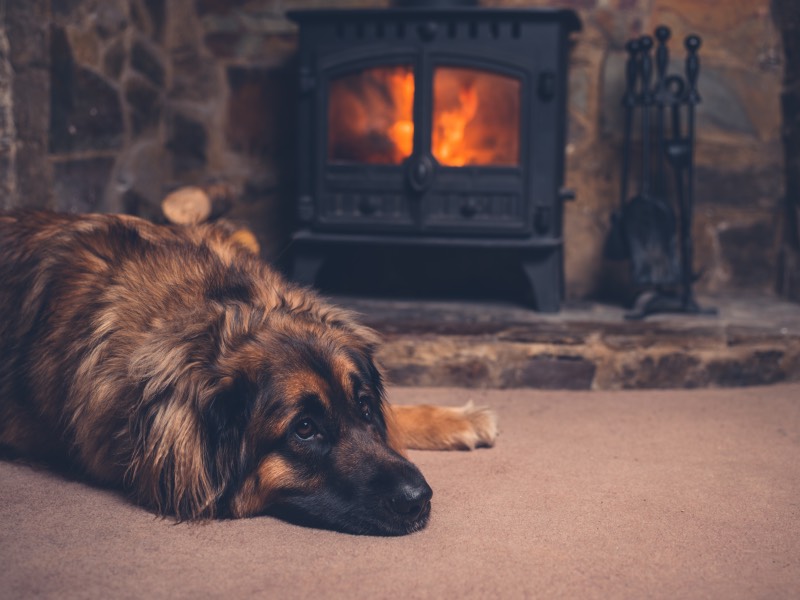
Whilst you are out and about – the outdoor playground has many hazzards
Walking is what many of us dog owners go on holiday to do and, whilst it is wonderful to see your dog running free and having fun, remember that a new area may carry with it hazards and dangers that you and your dog are not familiar with.
- Keep dogs under control when walking coastal paths and do not allow them to go close to the cliff-top edge. There are plenty of rabbits to chase on the cliff tops (rabbits can stop quickly!) and areas of cliff that are crumbling away. Chase (appropriately named!) was one lucky dog who survived his 200ft fall with just a broken leg but many aren’t as lucky.
- Cattle are another hazard. Not only should you prevent your dog from disturbing livestock (or wildlife for that matter), your dog may be tempted to chase an animal over a cliff or be stampeded if the cattle feel threatened (particularly when calving).
- Electric fences can really shock a dog if they touch them, especially with a cold wet nose, so make sure you keep them away. Our dog once touched an electric fence and was so startled that she took off and fled – we managed to catch up with her some half a mile later and thankfully the roads she crossed were traffic free.
- There is much publicity about dogs dying in hot cars and a cool sea breeze can often mislead you into thinking it is cooler than it really is, so don’t leave dogs in cars during the warmer months.
- Dogs love a day on the beach but keep your eyes open for sharp objects that have been washed up that could cut paws. Also make sure they don’t eat any unknown items (such as peoples picnics; rotten fish or seaweed which could cause an intestinal obstruction).
- For dogs who enjoy swimming, exercise the same caution with your dog as you would yourself. Like us humans, dogs can get swept out by rip-tides and stung by jelly fish! Also be careful of water quality when letting your dog swim or drink from ponds or lakes. Blue-green algae can be a killer for dogs as this tragic example shows, and is more prevalent during hot weather in waters with minimal flow. If you see a lake or pond with greenish coloured water, it’s better to be safe than sorry so keep your dog away.
We hope these tips help to keep your dog safe when you next take it on holiday and if you have any others you could share with us, please leave your comments below.

